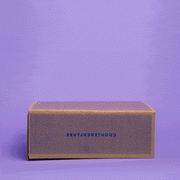Eastern Uganda is home to a chain of dormant volcanoes, most notably Mount Elgon, which straddles the Kenya/Uganda border. Kawacom’s washing station is situated between two waterfalls on the north side of the mountain. This station processes and dries coffee grown on farms between 1,750 to 2,300 meters above sea level. The operation also includes a system to compost cherry pulp, wastewater treatment pools, and a plant nursery.
We first purchased coffee from Kawacom’s washing station in 2014. The following year, we started working directly with Kawacom to forward-contract coffees and pay premiums for special preparations, like community-specific lots from Kabeywa. The coffees we purchased that year ushered in a shift in how we imagine the flavor of Ugandan coffee. We’ve never looked back.
Deus Nsubuga, the quality manager of Kawacom, impresses us with his tireless appetite for experimentation. This year, he tested the benefits of longer and colder fermentation. After pulping, coffee from Kabeywa was fermented for 18 hours dry (the traditional method at Kawacom’s washing station), then washed and soaked in water for 48 hours, with an additional wash and water change after the first 24 hours. The result is a coffee with greater clarity.
Explanation of the Name
Kabeywa is one of the highest-elevation villages in the Kapchorwa district. Farmers there deliver coffee cherries to Kawacom’s washing station for processing.
![]()
![]()
![]()
![]()
![]()
![]()
![]()
![]()











